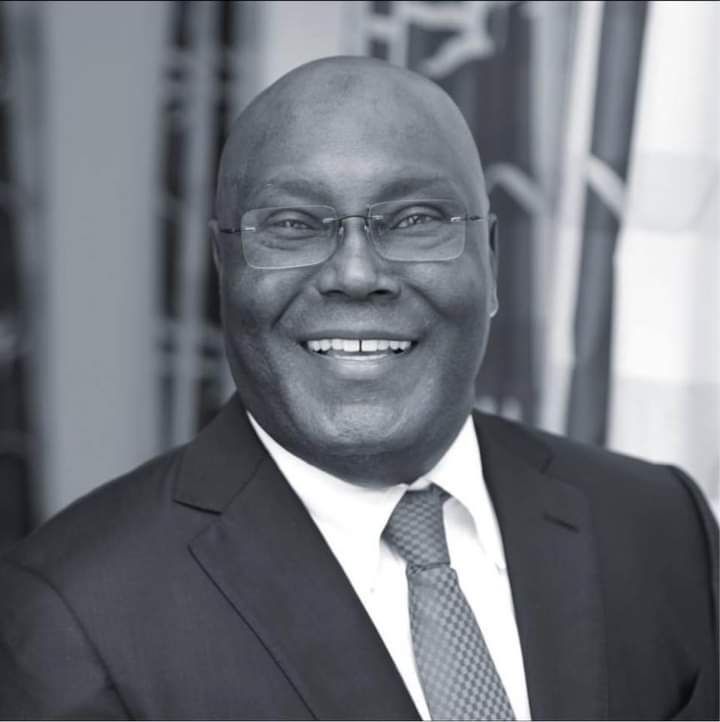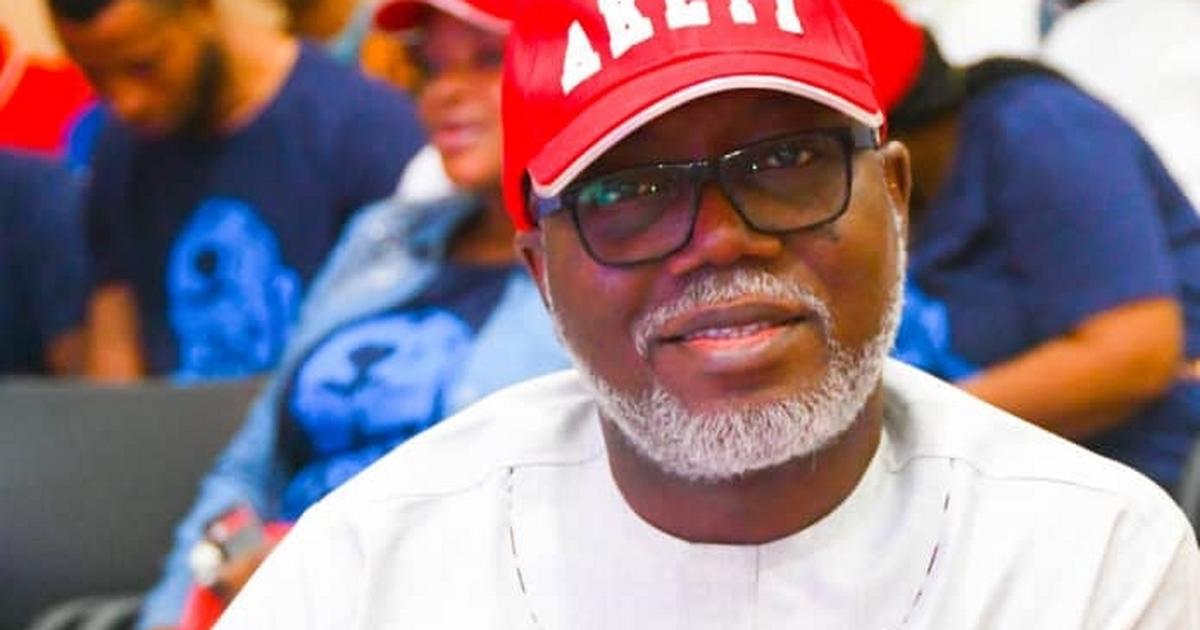Opinions
2023 Elections: Why Atiku Abubakar Is PDP Fittest Presidential Candidate By Kayode Adaramodu
Yet Atiku worked patiently with him, running all his responsibilities as diligently and faithfully as possible.

There is one incontrovertible fact: Majority of Nigerians agree that the present hardship should not continue. In practical terms and by inference – only the PDP can provide any reasonable hope of relief or way out of the dilemma. Only the PDP can stop the ruling party from continuing in power. However there’s justifiable apprehension in the populace, because unless the opposition party gets it right in its choice of the presidential candidate, the people’s hope and expectation would be dashed ab initio.
The PDP presidential primary holds in less than a fortnight, precisely between 28th and 29th of this month of May. As expected, many aspirants have expressed their interest and have purchased the nomination forms. But a critical look at the list of aspirants places Atiku Abubakar far above the rest in overall suitability if the PDP is serious about its intention not only to wrench power from the APC, but also to make any meaningful positive impact in the lives of presently bewildered Nigerians.
Kanu Bail: Solution To SE Agitation Lost -CUPP
Over the years, Atiku has demonstrated unmatched consistency and articulation in his call for a just and workable Nigeria and has, in the process, actually gained for himself a large and dedicated followership. In fact, what Nigerians are going through at the moment is making people to frantically demand the emergence of a credible alternative as the next president. To all intents and purposes, only Atiku fits the narrative! Since only the PDP possess the chance to loosen the APC’s noose on Nigeria, it’s most politically expedient for the PDP and good for the wellness of Nigeria if the PDP can field Atiku as its presidential candidate. The PDP owes it a duty to rescue the nation from the apparent apocalypse. A further reason for the PDP to present Atiku, who is its most formidable aspirant, should be to guarantee a high level of comfortable ascendancy over the APC.
As far back as 1993 presidential election, Atiku had already become a formidable political factor. For reason of political sagacity and deep love for Nigeria, he voluntarily stepped down for that revered business mogul Chief MKO Abiola, who eventually won the presidential ticket of the Social Democratic Party. But, as fate would have it and based on inexplicable political arithmetic, Babagana Kingibe and not Atiku was chosen as MKO’s running mate. Notwithstanding this reality, Atiku, without restraint, still went ahead to maximally expend his resources and energy to ensure that SDP won the election. Also in 1999, Atiku obediently, like a loyal party man that he is, accepted the position given to him by the PDP. That was how he served as Vice President to President Olusegun Obasanjo between 1999 and 2007.
Without doubt, Chief Olusegun Obasanjo is one of the most demanding leaders the world ever produced. Yet Atiku worked patiently with him, running all his responsibilities as diligently and faithfully as possible. At a time, Atiku was practically in charge of overseeing the homestead when Baba was pursuing debt forgiveness for Nigeria. Atiku was never found wanting, neither did he supplant his boss. The love of the country guided him in all his dealings. It was also a good period of learning and active experience in governance at the highest level. This explains why Atiku cannot be placed in the same class with others. He is a man thoroughly taught, mentored and adequately prepared for the office of the president.
Through exposure to many challenging situations, which he has successfully handled, both in his private and official dealings, Atiku has acquired so much capacity and demonstrative capabilities. There’s no questioning this at all. Being a patient, humble, calculating and highly cerebral individual, he has progressively built himself to be able to withstand any challenge; and never to entertain excuses. Atiku is a goal getter, one of the most indispensable characteristics of a man who PDP should consider as its presidential candidate and who Nigerians should desire to elect president next year.
During Atiku’s years as VP, duties compelled him to traverse the nooks and crannies of Nigeria and most economic centers of the world. He thus has profound understanding of Nigeria’s diversity and complexities. He already understands their peculiar needs and means of meeting them.
In fact, Atiku, in several ways is the answer to Nigeria’s contemporary situation. Being a world acclaimed, highly successful investor/entrepreneur, he understands the principles of economic diversification. Without doubt, he has the required experience, information and contacts to move the nation forward. In terms of maturity, those who know Atiku will agree that he has been a man long long time ago. So, there’s no fear of being overwhelmed by power or any position. He can’t at this juncture start playing into the gallery like most current aspiring actors. In fact, he knows that there’s work to do!
But above all these for the PDP, Atiku is the most dependable rallying point. The agent of unification. Being a man committed to fairplay and unity, he doesn’t play winner takes all game. He will surely unite the party to reposition it to save Nigeria. Moreover Atiku is more than a good match for any opponent; any presidential candidate from any party.
Atiku is sincere. He’s committed, strong and experienced; a grassroots politician who has become a household name throughout Nigeria. A man of discipline, balanced temperament, Atiku is firm, active and result oriented; able to unite the PDP and rally success for the party and Nigeria in the 2023 presidential election.
I have listened to the arguments of those who think differently about Atiku’s suitability. They are basically three. Many of his opponents had tried hard to accuse him of abuse of office when he served. The truth is that people can say anything or place any accusations on the other, Atiku has been thoroughly searched and it is only a fact that he has never been found wanting by any judicial quasi-judicial authority, and he has challenged on his readiness to submit himself for the purpose. He cannot therefore be made to face consequences of mere conjectures or unsubstantiated allegations. Atiku had built a rich network of friends and business partners before taking a public office as VP. It remains nothing but political mischief when political opponents and oppositions attempt to rubbish every legitimate business operation of entities connected to people in government as fraud. It becomes worse for those who occupy assistant positions–the faithful lieutenants–even in corporate environments. Prof. Yemi Osinbajo, the current VP, has suffered the same fate.
The second issue is that of zoning. This resonates with me very well because I believe in equity and fairness. People who read my article on the Atiku/Peter Obi joint ticket in 2019 would attest to my joy in the fact that the two regions that have been less favoured in our peculiar marginalization struggle, the North East and the South East, were set to form the next government. For me, if PDP were to be in government presently, I would be rooting for a candidate from the South East. In my opinion, I think the North East and the South East must help each other to address the problem of marginalization. As things are today and within the PDP, I think a unifier like Atiku has a better chance to win in 2023. And he has the character and capacity to make the South East agenda for President a reality after his tenure.
The third issue is that of Atiku’s age. I have understudied great democracies, politicians and people across cultures, professions and frontiers both locally and globally. I have examined critically and comparatively both ancient and contemporary challenges of developing societies and I can conclude that what is most important in leadership is the age of ideas, and not the age of biology. Atiku is healthy and his understanding of the functioning of a modern economy is extremely sound.
Therefore, the PDP delegates owe the party and the nation a sacred duty to rescue our nation from total collapse and restore her to the Pride of Place where it rightly belongs among the comity of Successful and Self-sustaining Nations by voting Alhaji Atiku Abubakar as the candidate of the party in the coming presidential primary. The party should unite more formidably to save Nigerians, ward by ward; local government by local government; state by state and to eventually save Nigeria.
Kayode Adaramodu, A Development Consultant and former PDP Governorship Aspirant, Ekiti State.




